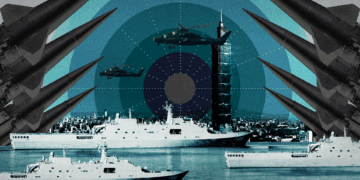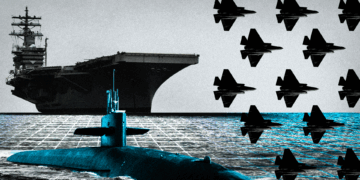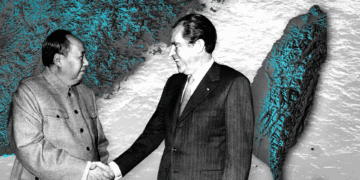November 8, 2022
So long to the capitalist peace

One of the longest-running disputes between realist and liberal theories of international politics regards the status of economic interdependence as a cause for peace. Yet amid Russia’s invasion of Ukraine and rising tensions in East Asia, surprisingly few have noted the real-time refutation of the “capitalist peace theory” that has for so long been at the center of liberal (in the IR sense) views of international relations.
In 1910, Norman Angell wrote his famous book The Great Illusion, which argued that it would be irrational for the European great powers to go to war with one another when their prosperity was so interconnected by mutual trade and investment. The subsequent outbreak of WWI confirmed for many observers that competition for relative power and security trumped the pacific pursuit of reciprocal gains in wealth.
Following the Cold War, however, the sheer scope and intensity of globalization convinced many that a new era of capitalist peace had arrived. Thomas Friedman famously proposed a “Golden Arches Theory of Conflict Prevention,” which claimed that no two countries with a McDonalds had ever gone to war. There were many propitious augurs for a new era of peace: the lines stretched for blocks when McDonalds first opened in Moscow, and even still-nominally Communist China proclaimed, “to get rich is glorious.”
More on Asia

Featuring Jennifer Kavanagh
October 4, 2025

Featuring Jennifer Kavanagh
September 29, 2025
Events on Grand strategy







